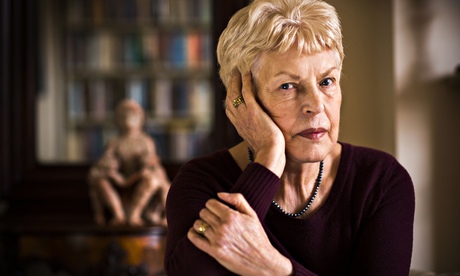One of those intermittent publishing fusses over a talked-up book by an unknown author occurred last autumn, when a debut novel by Nicholas Searle called A Reckoning was lucratively sold in the UK and US after a fight for the rights. Searle offers the media an enticing short-term backstory – as a retiree who developed the novel at a writing school set up by the literary agents Curtis Brown – and, going further back in time, an even more tantalising CV. He studied at a German university and, his author biography notes, “is not allowed to say more about his career than that he was a senior civil servant for many years” – a formulation that those familiar with the dustjacket subterfuges of certain spies-turned-writers will find a little … well, spooky.
And John le Carré, it turns out, is one of the biggest tutelary influences (along with Patricia Highsmith and Ruth Rendell) on a novel that, in the gap between sale and publication, has changed its name to The Good Liar, although its enjoyable momentum still leads towards a reckoning.
Searle’s book is not entirely an espionage tale, and the Le Carré character it most evokes is not so much George Smiley as Rick Pym, the monstrous conman dad from A Perfect Spy. The protagonist of The Good Liar is Roy Courtnay (aka, among other identities, Roy or Rob Marriott), a vicar’s son and former war hero who becomes a practitioner of financial scams. At the story’s start, octogenarian Roy is aiming for the last big payday of his life, having hooked up on an online dating site with Betty, a wealthy widow whose diligently tended nest-egg is now threatened by a cuckoo.
A neat, clean structure alternates between sections written in the present tense, as Roy’s heart races at the thought of getting his hands on Betty’s assets, and past-tense accounts of key scenes from the lives of the trickster and his associates. These range from Berlin in 1938 and 1946, when Roy is operating in military intelligence, through Macmillan’s Britain and the Heath era to the Blair years. These historical periods are evoked through resonant time-signatures – key football matches, industrial disputes, weather episodes – although Searle earns distinction as one of the few writers to have flashed back to 1963 without referencing the Kennedy assassination.
Searle nicely paces the dropping of details that explain what made Roy the person he now pretends to be – the expression “nomme de guerre” lies under the story like a landmine – and is the latest novelist to benefit from one of printed fiction’s advantages over visual media: that the same person can easily make more than one appearance under different names.
Those chapters in which Roy is closing in on Betty’s accounts, while at risk of being thwarted by the beady presence of her grandson Stephen, work as a satisfying home counties Ocean’s Eleven. They also gain tension from our awareness, following experience of cinematic con-plots that become ever more twisty, that those carrying out a sting may also be at risk of being stung. Can Betty really be as compliant as she seems?
The narrative language is often plumply old-fashioned: newspapers are “perused” and crowds “disgorged”, and calculations of quantity are qualified by “a tad”. As this is Searle’s first book, it’s impossible to know if this tone is his own or one that he has chosen for Roy. Roy’s characterisation – “an Englishman by birth, swimming in compromise, awkwardness and embarrassment” – is convincingly done and the dialogue wittily gives him a sly habit of underlining his reliability to potential victims by falsely proclaiming his moral scruples. Honesty, he laments, “is no longer valued”. “I’ve simply learned not to trust people.”
Searle is far from the first writer to use the art of the confidence trick – “one big lie is all you ever need” – as a metaphor for the things that governments and individuals do in other circumstances, but these layers of liars add to the impact. A successful novel is also a sort of swindle (making a fiction sound convincing, misleading the reader about where things are going), although with the difference that a good one should provoke a desire to be duped by the same person again. The Good Liar makes you want to experience Nicholas Searle’s next trick.
Mark Lawson’s The Deaths is published by Picador.
• To order The Good Liar for £10.39 (RRP £12.99) go to bookshop.theguardian.com or call 0330 333 6846. Free UK p&p over £10, online orders only. Phone orders min p&p of £1.99.








